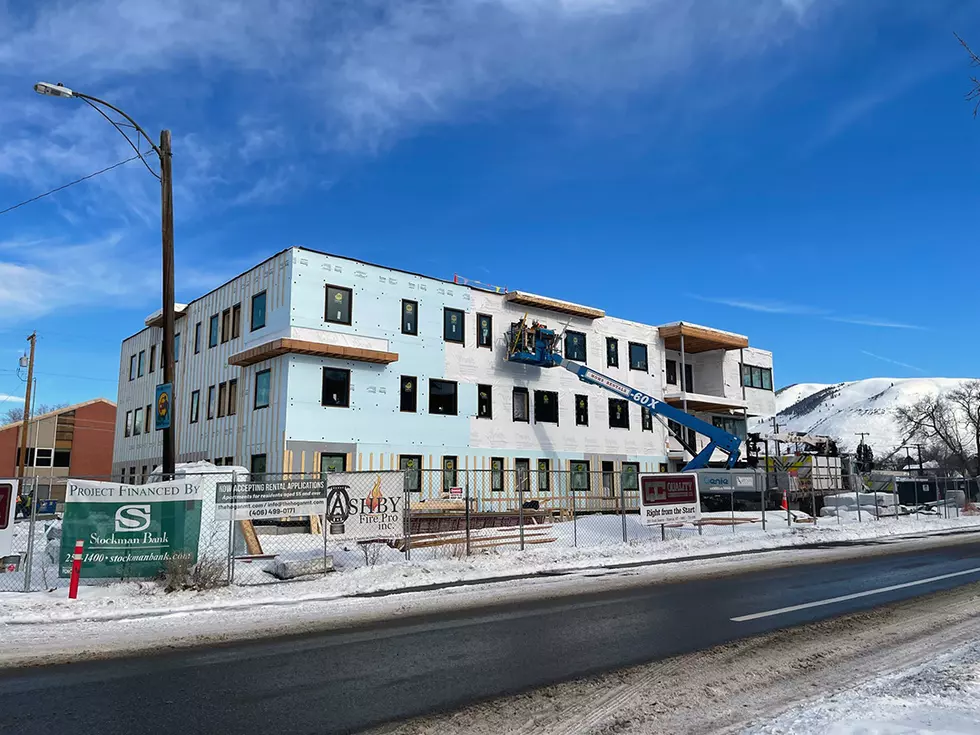
Active living hits Missoula’s Hip Strip as housing needs for aging adults grow
Martin Kidston
(Missoula Current) With the Hip Strip poised for new development, the several dozen aging residents who will live in The Hogan will find the amenities they need close at hand when it opens this spring.
The location on Sixth Street, one block west of Higgins Avenue, was the perfect spot for Mike Robinson to build his new $8.2 million residential facility – a place intended for those 55 years and up.
It's here where residents can age in place.
“I thought when we built this the average age would be around 75 or so. But the people we have, a lot of them are still employed. The early 60s is our average age right now,” said Robinson. “We designed the building for an active lifestyle. It's a design where you can age in place.”
The Hogan sits on land once owned by the First Presbyterian Church. Liking the concept behind the building plans, the church sold the property to Robinson, who was set on the location and its proximity to existing services, most within walking distance of the project.
From light cooking to social gathering, the needs of an aging community were built into the complex. Residents will find laundry rooms on every floor, handicap accessible amenities, rooms dedicated to arts and crafts, and sound-deadening walls. Each floor also includes a cleaning closet, a gathering space and wide doors and hallways.
The second and third floors include large outdoor patios offering views of the neighborhood. Social gathering played strongly into the building's design, Robinson said.
He also noted the three daycare centers neighboring the building. He envisions The Hogan's residents having story hour with kids, blending generations side by side.
“Apartments can be very isolating. Your neighbors move in and out,” he said. “We weren't trying to build a building, we're trying to build a community. We're trying to balance communal living with a home.”
Senior housing needs
Missoula has faced an acute housing shortage in recent years. The lack of supply has played a role in driving up prices as demand has soared.
In recent years, the development community has answered the call and dozens of projects are under construction across the city. They range from market-rate apartments to income-restricted housing, single-family homes to condos. The prices run the gamut from affordable living to products that cater to higher incomes.
But senior housing hasn't been as hotly discussed in conversations around Missoula's housing needs. Robinson experienced the challenges of finding housing for aging adults when he moved several family members to Missoula.
“We couldn't find a place for my mom. There's just so few options,” he said. “What we tried to build is an option for people who can live independently. One of the big problems that seniors face is affordable housing. They don't have to maintain a house here. They also have a social connection.”
The city's housing policy mentions the need for senior housing, though it looks more acutely toward wage and financial problems than it does toward the needs of an aging population.
But there's no denying that Missoula is getting older. From 2010 to 2019, the population of older adults in Missoula grew 40%, or four times more than the overall population. The population trend has gained the attention of some developers, who see both an opportunity and community need in meeting Missoula's demand for senior housing.
Still, Robinson noted that some places billed as senior living come with a steep price tag. The cost often includes built-in care and assistance, which doesn't come cheap. But not all aging adults want or will need such care, and they don't want to pay for it until they have to.
“You live here and 20 years go by, you can still stay in your house,” Robinson said. “There are many agencies that can come by and help you in your place. They can help you here.”
While the property includes its private rooms, those rooms are connected by large gathering rooms, communal kitchens and shared spaces. As part of the cost (rooms range from $900 to $1,900), The Hogan will provide a service to keep the spaces clean and to conduct maintenance.
At least in the beginning.
“My hope – and this is to be proven out – is that the resident's association will determine things. I would love to turn over some of these building maintenance and budget items to them,” Robinson said. “With time, I'd love to turn more and more of the maintenance and those kinds of issues over to the resident's association.”
